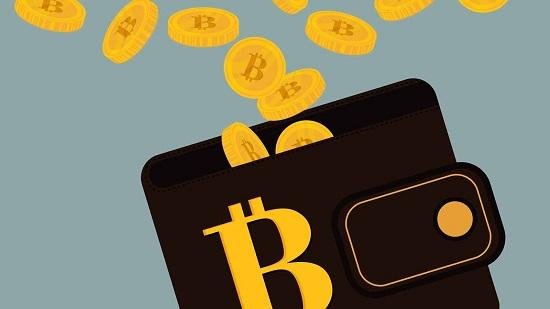
As interest in digital currencies like Bitcoin increases, more and more Bitcoin scams promise high returns. The unrealistic lure is obviously a mere mask, and will usually end in the loss of clients' funds. Fraud often spreads in social circles based on trusted relationships. Therefore, we must be aware that some sneaky swindlers can actively seek ways to deceive with unreasonable tricks and offers.
Examples of Bitcoin Fraud Incidents
Scam Bitcoin Bersema Money Game
Examples of recent incidents of Bitcoin fraud occurred in Africa, with huge losses. The fraud incidents claimed 28,000 investors, who have reportedly lost more than 1 billion Rand, or about $ 80.4 million. Fraud committed by BTC Global is aiming at the public with the promise of 2% interest per day, 14% per week, and finally 50% per month. Payments are made every Monday, and some investors do get paid. But soon, the payment suddenly stopped. Clients who have already signed funds do not return.
Scam Bitcoin Berskema Investment Program
The subsequent fraud occurred in Austria, dubbed the incident of the "Optioment" investment scheme. It was reported that one of its operators had stolen some 12,000 BTC ($ 116 million) from the 10,000 victims who followed the investment scheme. This Bitcoin Scam operates by running a website (now Offline), and claims to be Bitcoin's premier global investment product from Costa Rica-based private funds. The fraud scheme also claims to have an asset-backed investment platform of more than 35,000 BTC. The lure given is an investment return of 1.5% -4% per week on the deposited Bitcoin. Investors are also rewarded more if they can bring new users into the group (Referral).
Scam In ICO Form
ICO (Initial Coin Offering) last year generated more than $ 3.7 billion. Spearheaded by Ethereum in 2014, fundraising for initial coin offers begins in 2017. The figure has also exceeded venture capital investment for Blockchain startups. In fact, ICO is still not regulated and very risky.

One example of the ICO scam is Prodeum which promises to revolutionize the fruit and vegetable industry. Although the goal looks very realistic in the future, but the ICO leads to fraud. Another famous ICO deception is PlexCoin which was closed by the US Securities and Exchange Commission (SEC) in December. The $ 15 million fraud took money from thousands of investors, after promising 13-fold earnings in a month.
How to Avoid Bitcoin Scam
Why do people still fall into this kind of deception even though the sample of the victims is overwhelming? According to Bob Wood, founder of Nexxus Global Rewards Community, two things that cause many people to be deceived are ignorance and greed. By 2016, he explains that new technology is not understood by ordinary people, allowing scammers to mix the truth with lies in order to trick the unconscious with false promises

With the rise of Bitcoin scam, we need to be prepared for all the worst that will happen. Here are 5 ways to avoid a Bitcoin scam that you can learn and apply:
- Know What You're Facing
You do not have to rush to decide whether an investment product is a scam or not. All you need to do is, take a moment to find out more about the project. The easiest way to do this is to look for details of the company or Whitepaper (if ICO), and anything else related to the investment product. Learn all the details thoroughly and do some research on testimonials, comments, and so on. Another way is to join Bitcoin forums like Bitcointalk, and directly ask the credibility of an investment product or company to another member.
- Avoid Unrealistic Offers
Usually, crypto currency scams can disguise their identity by using social media accounts or professional looking Banner ads. Mark Steward, FCA's law enforcement director, explains that as people become more skeptical about the real world of investment and consumer habits have changed, investment fraud has shifted to the Online realm and social media.
How to avoid this Bitcoin Scam is, you are better selective on all the investment offerings of the Online platform that you did not ask for, be it through social media, email, or even over the phone. Even if it looks official, notice how the offer. The fraudsters usually dare to promise high profit to lure victims. So if you feel the promise of profit is not realistic, immediately ignore the proposed offer.
- Beware of Phishing Web Pages
Increased interest in the crypto currency has brought many new investors into the market. Plenty of land on fake landing pages that proclaim themselves as popular digital currency exchange platforms. One example is that using Punycode techniques. Through this method, the false domain 'xn - inance-hrb [dot] com' can be displayed as 'ƅinance [dot] com'. This technique is usually able to deceive the consumers, because the web page can look really like the original. You can handle it by being aware of the vulnerabilities that exist in internet browsers, such as Chrome, Firefox, and Opera,
- Beware of Counterfeit Digital Wallets
Fake virtual wallets often appear online or in mobile app stores. In the fake Wallet fraud example that ever happened, more than $ 3.3 million was stolen from users who wanted to claim their Bitcoin Gold. To anticipate a similar incident, many Bitcoin Wallet providers warn clients to be wary of cloning from scammers who want to steal victims' funds by mimicking their looks.

MyEtherWallet for example, warns customers of fake MyEtherWallet in December. In addition, before selecting a Digital Wallet provider, do your research first. Please share your opinions on the leading Crypto forums, both local and foreign. In essence, just use a Wallet provider with a good track record.
- Beware of Bitcoin Thieves Malware
Malware is something that concerns computer owners. However, currently, a new category of Malware that is able to steal Bitcoin related data has emerged. Malware authorized by the computer owner is able to record typed or search for a file with the keyword "Account", "Password", "Bitcoin", "Wallet", or any other keyword specified by the author, then upload the file to an anonymous server automatically.
In addition, there are also Malware that seeks to absorb the computing power of computer users to mine crypto. Anticipating this, YouTube is attempting to disable ads that take computing power to mine crypto currency. Believed, once a user sees a related video ad, the computer becomes slow and there will be a warning from an anti-virus program. Malware like this is able to steal computing power up to 100% to mine crypto currency (in general Monero). The workable solution here is to install powerful anti-virus protection and active Firewall to protect the computer.
Conclusion
The crypto currency market has indeed become an attractive sector, but investors should also be selective in distinguishing which investment programs are valid, and where the real-life scheme is a Bitcoin scam. As an undocumented industry, no authority or government body guarantees the protection or refund of cryptocurrency consumers in case of fraud, whether intentional or otherwise.
With the nature of Bitcoin and other crypto currencies untouched by any authority, and then coupled with the anonymity factor provided, the chance of fraud for undetectability is wider. Use of Hardware Wallet, 2-factor authentication, and other security features can indeed guarantee hacking risk reduction. But all that would be meaningless if you yourself can not be wary of Bitcoin scam, because it is easily fooled by a lucrative investment offer.